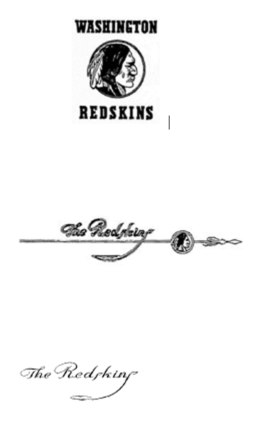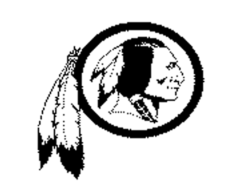You've heard that six of the Washington Redskins' trademark registrations have been cancelled. But what does that mean?
- Washington can still sue people for using the term "Redskins" in an infringing manner.
Pending appeal, Washington's "Redskins" trademarks are still valid. So don't expect a wave of infringing products, like unlicensed football cards, in the near term.
In fact, there won’t be a wave of infringement no matter what happens because Washington does not need a "Redskins" trademark registration to bring lawsuits. Registrations from the Patent and Trademark Office make it easier for Washington to bring and win trademark infringement suits. A lack of registrations, however, will not block it from enforcing its rights in its team name.
- Only its "Redskins" registrations were cancelled; not its team logo.
All six cancelled marks had the term "Redskin" in them, which the Trademark Trial and Appeal Board found to be derogatory to a significant population of Native Americans during the 1967-1990 time frame. Three of the cancelled marks were for the following "designs":
Three other marks were for the words and phrases Washington Redskins, Redskins and Redskinettes.
What wasn't cancelled, or even at issue, were trademarks on current team logos that do not use the term "Redskins," like this still-registered, trademark:
Registered marks like this still give Washington protection on its goods and services since consumers (normally) don't just want jerseys that say, "Redskins." They want jerseys with team logos and colors too.
And since team colors are arguably protected by trade dress, Washington still has a lot of IP protection.
- The cancelled marks only covered football games, not goods.
Washington's now-cancelled trademarks didn't cover the whole universe of goods and services. They were limited to Section 41 for, basically, football games. That's it.
Which brings up an interesting point: it looks like Washington never had trademark registrations covering the word "Redskins" for use with any goods, let alone jerseys, shirts or trading cards. So when it comes to actual goods, this cancellation means little. Washington did not have REDSKINS trademarks on jerseys or trading cards before the ruling. It still does not today.
- For appeal purposes, it's anyone's game.
There's a number of factors that show Washington might prevail on appeal.
First, the TTAB decision was 2-1. Two judges sided with the petitioners, one did not. It was therefore a close decision.nd Agiven that, on appeal, the case will get a new judge, there's always a chance (for all close cases) that a new judge will see the issues differently.
Second, this case is nearly identical to an older action where the TTAB cancelled these same marks only to have a district court overrule it. Since this case is, for all intents and purposes, the same, Washington's chances on appeal are better than normal.
Legal translation: I can hear the opening argument already, "Your Honor, previously a district court told the TTAB it couldn't do what it just did. Please tell them once again that they've screwed up."
Third, the two judges that sided against Washington cancelled the registrations because they believed the evidence showed "a substantial composite of Native Americans found the term REDSKINS to be disparaging in connection with respondent’s services during the relevant time frame of 1967-1990." In looking over their reasoning and facts relied upon, there are quite a few holes, which the dissenting judge, rather elegantly, points out:
It is astounding that the petitioners did not submit any evidence regarding the Native American population during the relevant time frame, nor did they introduce any evidence or argument as to what comprises a substantial composite of that population thereby leaving it to the majority to make petitioners’ case have some semblance of meaning.
Legal translation of dissenting judge's opinion: "The petitioners' case was a mess. It was supposed to focus on Native Americans' thoughts during 1967-1990. There was no evidence of that. Still, for some reason the judges assembled a case for them. Judges aren't supposed to do that. If the petitioners can't put together a case where they have the burden of proof, they should lose."
The dissenting judge was also critical of the actual evidence in the case which really was only dictionary definitions and articles using the word "Redskin" as interpreted by three experts. As the dissenting judge explained:
As noted above, Dr. Geoffrey Nunberg, Dr. Ronald Butters, and David K. Barnhart were qualified as expert witnesses in linguistics, none of whom specifically researched the Native American viewpoint of the word “redskin(s)” in connection with football-related services during any time period. Despite the fact that the issue before us is how Native Americans perceive the term “Redskins,” we are presented with the expert testimony of three non-Native American men opining on how other presumptively non-Native American men and women (i.e., the editorial staff of dictionary publishers) perceive the term “Redskins.”
Legal translation: While the issue is supposed to be how Native Americans perceived the term "Redskins" from 1967-1990, the evidence presented was of how three non-Native American men thought other non-Native American men and women perceived the term. That's not the required analysis. So the petitioners should have lost.
And that's why, in my opinion, we're looking at about a two year appeal process, where Washington will ultimately prevail.
The information provided in Paul Lesko's "Law of Cards" column is not intended to be legal advice, but merely conveys general information related to legal issues commonly encountered in the sports industry. This information is not intended to create any legal relationship between Paul Lesko, the Simmons Browder Gianaris Angelides & Barnerd LLC or any attorney and the user. Neither the transmission nor receipt of these website materials will create an attorney-client relationship between the author and the readers.
The views expressed in the "Law of Cards" column are solely those of the author and are not affiliated with the Simmons Law Firm. You should not act or rely on any information in the "Law of Cards" column without seeking the advice of an attorney. The determination of whether you need legal services and your choice of a lawyer are very important matters that should not be based on websites or advertisements.
 |
























